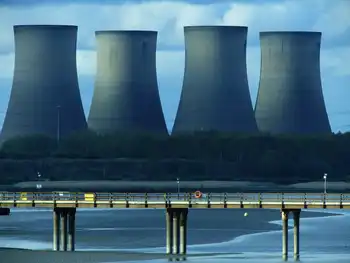What big solar wants and doesnÂ’t want
By Reuters
Substation Relay Protection Training
Our customized live online or in‑person group training can be delivered to your staff at your location.

- Live Online
- 12 hours Instructor-led
- Group Training Available
That's what made a solar-industry breakfast, hosted by Dow Corning, so interesting. Dow Corning, a major supplier to the solar industry, and its allies, including Abengoa Solar, BP Solar, Kyocera, Sanyo and Schott, put forth a long list of federal policies that they would like to see enacted to give solar power a jump-start and bring it to scale.
What do they want? A permanent manufacturing tax credit. Renewable Electricity Standards, with set-asides for solar, which would require utilities to buy a fixed percentage of their electricity from solar plants. So-called feed-in tariffs, which require utility companies to buy "clean energy" at prices higher than average wholesale prices. Federal support for training workers and educating the public about solar. Loan guarantees. Requirements that federal agencies buy more renewable power for their own operations. Treasury grants of some sort.
All this, of course, on top of either a carbon tax or a cap-and-trade system to regulate greenhouse gases and put a price on carbon emissions — a policy that makes good sense, because it will capture the external costs of burning fossil fuels. Of course, a cap-and-trade scheme would also benefit low-carbon energy sources like solar.
Well, at least the industry is transparent. Not to mention brazen.
"Solar energy is a clean, efficient and readily available technology that with the right support could help transform America's energy, environmental and economic future," says Stephanie Burns, the chairman, president and CEO of Dow Corning, a $5.5 billion (revenues) company based in Midland, Michigan, that's is jointly owned by Dow Chemical and Corning.
Please don't misunderstand me. I would love to see the solar industry thrive. And Dow Corning deserves enormous credit for investing about $5 billion in manufacturing plants in Michigan — which sorely needs new jobs — as well as Tennessee and South Korea. "We think solar is ready to go to scale," Burns says. "We're right at the cusp for that to happen."
The question is, at what cost? If solar is, indeed, a practical solution to the climate crisis, and if Dow Corning has already shown itself willing to put up $5 billion of its own money, why does solar need so many special favors?
More to the point, why should the government favor solar over wind energy, or geothermal power, or low-carbon electricity from nuclear (gasp!) or from kites or from retrofitting buildings and homes to make them more efficient?
When I asked that question, Burns and others argued that, well, solar is different. For one thing, rooftop solar PV is distributed (as opposed to centralized) energy and therefore it takes stresses off the electricity grid, providing a broad public benefit. For another, solar works best during the daytime when demands for peak power are high, again saving the costs of developing more big power plants, which are borne broadly. "Those are two reasons why it makes sense to have a set-aside for solar, particularly," Burns said.
Dow Corning also argues that the U.S. should underwrite solar for competitive reasons. China and Germany have established aggressive subsidies to attract clean-technology manufacturing facilities, while the U.S. government has not, the company said. As a result, over the last 12 years, the U.S. global market share of solar manufacturing has dropped from 45 percent of the world total to only 7 percent.
Others said solar is more labor-intensive, and therefore a good investment of taxpayer money. "The federal government is spending a lot of money trying to generate jobs," said Paul D'Arcy, senior vice president of Sanyo. "This industry, to a larger degree than alternatives, is a likely candidate for creating many more jobs throughout the United States." True enough — installing solar panels takes lots of people but that's one reason it's so expensive.
And the loan guarantees? "Banks don't want to lend because it's a new area," said John Bucher, chief operations officer of Solar Power Industries, a solar cell manufacturer based near Pittsburgh. Again, that may well be true — or perhaps they worry that alternatives will come along, like offshore wind or small-scale nukes or even cleaner coal, that turn out to be better.
I don't know which technology will prove to be the best option. Neither does the solar industry. Or anyone else. Probably, we'll need all or most of them. I believe in distributed solar power. But I believe even more strongly in the power of distributed knowledge, which is best expressed by markets.
So: By all means, let's cap carbon emissions. Or enact a revenue-neutral tax on fossil fuels to limit the damage done by burning coal, oil and natural gas. Tom Friedman proposed that again today, in a great column on America's green revolution is tied to Iran's.
But let's not ask Washington to decide who wins and loses in the world of clean tech. That's a job best left to big and small companies, entrepreneurs, inventors, investors, lenders and customers. Business people, of all people, should understand that, even if politicians don't.











